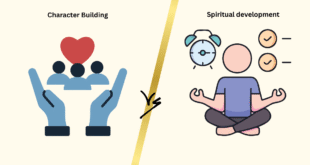The early childhood stage, covering the ages 3 to 6 years, is one of the most exciting and critical phases in a child’s growth journey. This period is often called the preschool years because children develop essential skills that prepare them for formal education and life ahead.
During these years, children experience remarkable physical, cognitive, emotional, and social development, setting the stage for their future personality, habits, and learning abilities. Understanding these child development stages helps parents, teachers, and caregivers nurture young children in the best possible way.
In this comprehensive guide, we’ll explore the milestones, developmental challenges, and practical parenting strategies for supporting children aged 3–6 years.
Why Early Childhood Development Matters
The early childhood stage is sometimes referred to as the foundation period. It shapes a child’s future success, well-being, and ability to learn. Research in child psychology and education shows that 90% of brain development happens before age 6.
Here’s why this stage is so important:
- Brain development: Neural connections are formed at an astonishing rate, influencing intelligence and behavior.
- Social skills: Children learn to cooperate, share, and form friendships.
- Language explosion: Vocabulary expands rapidly, laying the groundwork for literacy.
- Identity formation: Early self-concept and confidence are built through interactions.
- Moral development: Children start understanding right from wrong.
By understanding child development stages during early childhood, parents can provide the right environment and experiences to support growth.
Key Areas of Development in Early Childhood (3–6 Years)
Early childhood development can be divided into five major domains, each with unique milestones and challenges:
- Physical Development – Growth of body, coordination, and motor skills.
- Cognitive Development – Thinking, problem-solving, and creativity.
- Language Development – Speech, communication, and understanding.
- Social Development – Interaction and relationships with others.
- Emotional Development – Understanding and managing feelings.
-
Physical Development (Gross and Fine Motor Skills)
Between ages 3 and 6, children’s bodies grow steadily, and they gain strength, balance, and coordination. This enables them to perform more complex physical activities.
Gross Motor Skill Milestones:
- Age 3:
- Climb stairs with alternating feet.
- Runs with better coordination.
- Rides a tricycle.
- Age 4:
- Jumps forward, hops on one foot.
- Throws a ball overhand.
- Begins to skip.
- Age 5–6:
- Balances on one foot for 10 seconds.
- Skips, jumps rope, starts learning to swim or ride a bike.
Fine Motor Skill Milestones:
- Uses scissors with supervision.
- Draws basic shapes and simple figures.
- Begins to write letters or numbers.
- Dresses and undresses independently.
- Builds towers and structures with small blocks.
Parenting Tips for Physical Development:
- Provide outdoor play opportunities to develop coordination.
- Encourage activities like drawing, coloring, and puzzles for fine motor growth.
- Ensure proper nutrition and regular health checkups.
- Limit sedentary screen time to foster active play.
-
Cognitive Development
Cognitive growth during early childhood is rapid and highly visible. Children become curious explorers, asking endless questions and showing creativity in problem-solving.
Piaget’s Preoperational Stage (Ages 2–7):
According to Jean Piaget, children in this age range are in the preoperational stage of cognitive development, characterized by:
- Symbolic thinking and imagination.
- Egocentrism (difficulty seeing others’ perspectives).
- Rapid language development.
- Difficulty understanding abstract concepts like time.
Cognitive Milestones by Age:
- Age 3–4:
- Understands simple counting and sorting.
- Engages in pretend play.
- Recognizes basic shapes and colors.
- Age 5–6:
- Understands cause-and-effect relationships.
- Starts basic problem-solving.
- Can follow multi-step instructions.
Parenting Tips for Cognitive Development:
- Read books daily and discuss stories.
- Encourage open-ended play like building blocks or pretend kitchens.
- Answer questions patiently to foster curiosity.
- Introduce age-appropriate educational games and puzzles.
-
Language Development
Language skills explode during early childhood. Children move from simple sentences to complex conversations, preparing for reading and writing.
Language Milestones:
- Age 3:
- Uses three- to four-word sentences.
- Understands “why” and “what” questions.
- Age 4:
- Speaks clearly enough for strangers to understand.
- Knows basic grammar rules.
- Age 5–6:
- Tells stories with a beginning, middle, and end.
- Recognizes rhyming words.
- Begins reading simple words.
Parenting Tips for Language Development:
- Read aloud daily and ask questions about the story.
- Engage in conversations, encouraging your child to express ideas.
- Sing songs and rhymes to develop vocabulary and memory.
- Avoid baby talk, use proper words and clear speech.
-
Social Development
Social development during early childhood involves learning how to interact with others, build friendships, and follow rules.
Key Social Milestones:
- Age 3:
- Plays alongside peers (parallel play).
- Starts taking turns with assistance.
- Age 4:
- Plays cooperatively with others.
- Understands the concept of sharing.
- Age 5–6:
- Develop close friendships.
- Understands social rules and consequences.
Parenting Tips for Social Development:
- Arrange playdates or group activities.
- Model positive social behaviors like sharing and empathy.
- Encourage teamwork through games or chores.
- Teach problem-solving during conflicts.
-
Emotional Development
Emotional growth is central during early childhood. Children learn to recognize, express, and manage their feelings.
Emotional Milestones:
- Ages 3–4:
- Shows a wide range of emotions (happiness, anger, fear).
- Begins to express empathy.
- Ages 5–6:
- Understand others’ feelings better.
- Develop self-confidence through achievements.
Parenting Tips for Emotional Development:
- Validate your child’s feelings by acknowledging them.
- Teach calming techniques like deep breathing.
- Praise effort rather than just results to build resilience.
- Use stories and role-play to teach empathy.
Developmental Milestone Timeline (3–6 Years)
| Age | Physical Skills | Cognitive Skills | Language Skills | Social Skills | Emotional Skills |
| 3 years | Climbs, runs, rides tricycle | Pretend play, basic counting | 3–4 word sentences | Parallel play | Identifies basic feelings |
| 4 years | Hops, skips, throws ball | Sorting, simple problem-solving | Understands grammar rules | Cooperative play | Shows empathy |
| 5 years | Balances, jumps rope | Cause-effect reasoning | Tells simple stories | Close friendships | Growing independence |
| 6 years | Swims, rides bike | Early logical thinking | Reading basic words | Understands rules | Self-confidence |
Challenges in Early Childhood Development
While growth during this stage is remarkable, challenges can arise. Parents should watch for early signs of developmental issues.
- Speech and Language Delays
- Difficulty speaking clearly by age 4.
- Limited vocabulary compared to peers.
Solution:
Consult a speech therapist and engage in daily reading.
- Behavioral Issues
- Frequent tantrums or aggression.
- Trouble following rules.
Solution:
Set consistent boundaries and model calm behavior.
- Learning Disabilities
- Difficulty recognizing letters or numbers.
- Trouble focusing or remembering instructions.
Solution:
Early assessment and tailored educational plans.
- Social Anxiety
- Avoids group activities or new environments.
Solution:
Gradual exposure to social situations with parental support.
Factors Influencing Early Childhood Development
Several factors impact how children develop between ages 3 and 6:
- Nutrition: A balanced diet supports brain and body growth.
- Parenting Style: Warm, responsive parenting fosters confidence and security.
- Environment: Safe, stimulating spaces encourage exploration and learning.
- Cultural Beliefs: Traditions influence social skills and values.
- Health Care: Regular checkups ensure proper growth and early detection of issues.
- Education: Quality preschool programs enhance academic readiness.
Role of Play in Early Childhood
Play is the work of childhood, essential for learning and development.
Types of Play:
- Physical Play: Running, jumping, outdoor games for motor skills.
- Pretend Play: Role-playing scenarios that build creativity.
- Constructive Play: Building with blocks or puzzles to develop problem-solving.
- Social Play: Group games that teach teamwork and sharing.
Parenting Tip:
Provide a variety of toys and play opportunities while allowing children to lead playtime activities.
Parenting Strategies for Ages 3–6
- Establish Routines: Consistent schedules for meals, sleep, and play build security.
- Encourage Independence: Allow children to make choices, like picking clothes or snacks.
- Read Daily: Supports cognitive and language growth.
- Set Clear Boundaries: Use positive discipline and explain rules clearly.
- Monitor Screen Time: Limit to 1 hour of quality content per day.
- Celebrate Achievements: Praise effort to build confidence.
- Engage in Family Activities: Strengthens bonding and social skills.
- Promote Healthy Habits: Encourage good hygiene and balanced nutrition.
Early Warning Signs to Watch For
Seek professional advice if your child:
- Isn’t speaking clearly by age 4.
- Shows no interest in playing with peers.
- Can’t follow simple instructions.
- Avoids eye contact or seems withdrawn.
- Has trouble walking, jumping, or balancing.
Early intervention greatly improves outcomes for developmental delays.
Conclusion
The early childhood stage (ages 3–6) is a period of incredible growth, exploration, and learning. By understanding the child development stages, parents and educators can provide the right environment to support physical, cognitive, emotional, social, and language development.
This phase lays the foundation for future success in school and life. With love, patience, and guidance, you can help your child navigate these formative years and grow into a confident, capable, and compassionate individual.
 Edutarbiyah English Blog of Parenting and Tarbiyah
Edutarbiyah English Blog of Parenting and Tarbiyah



